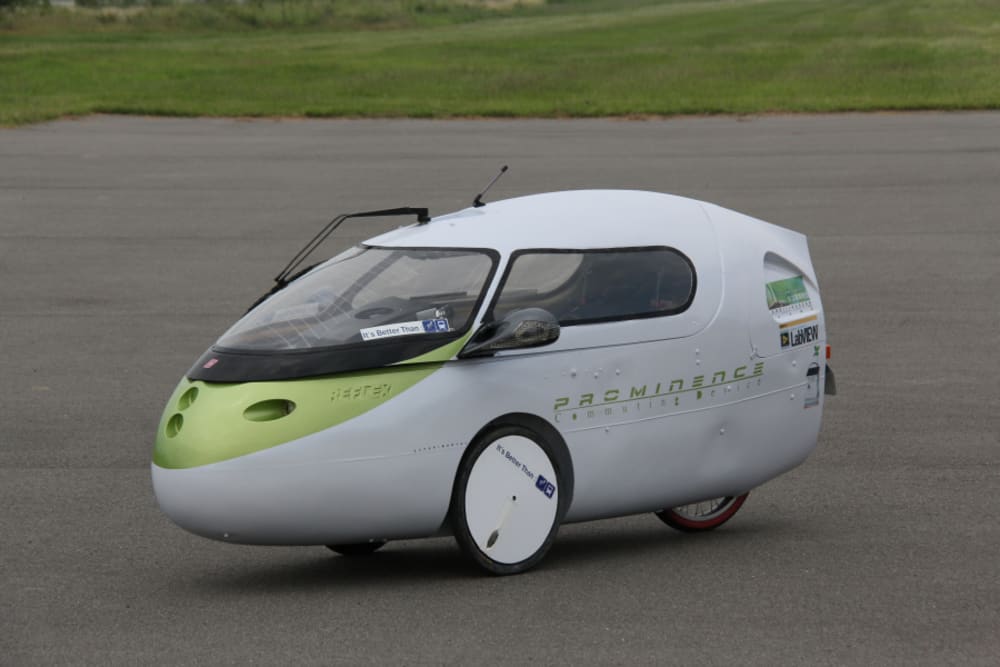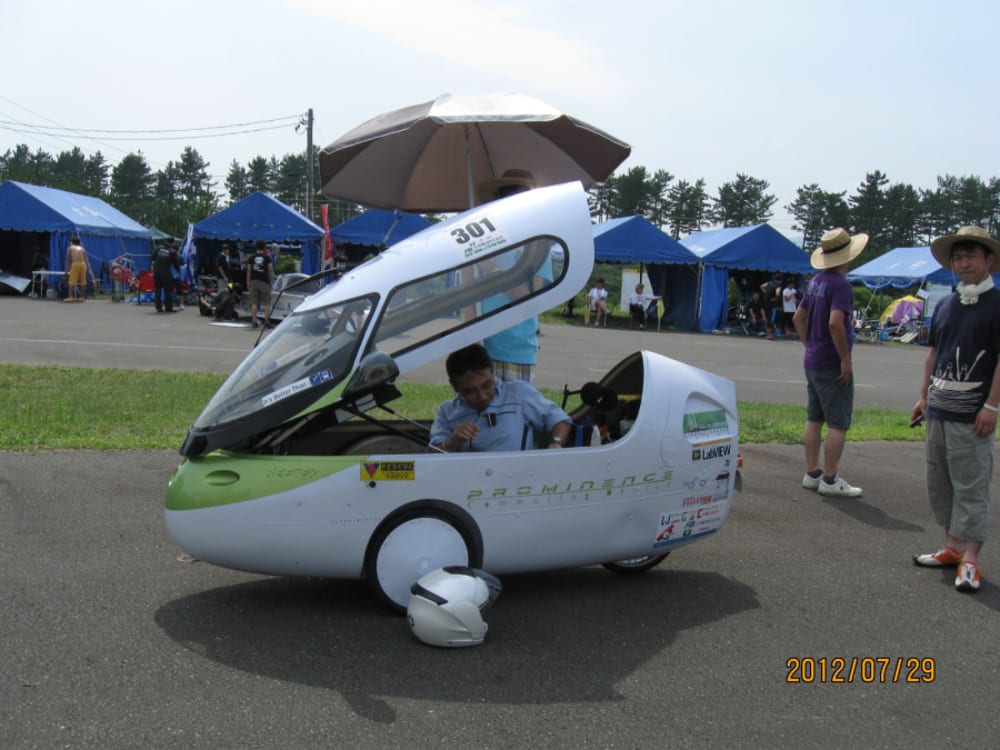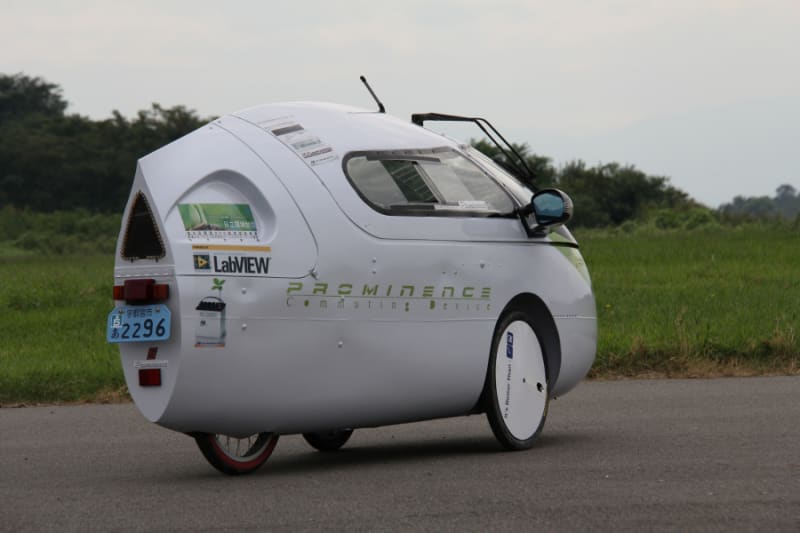The P.C.D. - Prominence Commuting Device, proposes a sustainable and attractive battery-powered single-seater electric vehicle.
We have been demonstrating our concept using bicycle components that anyone can buy on general market. This concept can rebuild the way of mobility as people's daily transportation. In addition, new culture of DIY - with intellectual excitement, is born when anyone can produce a very compact mobility like the P.C.D.
The P.C.D. has a highly functional electric propulsion system with KERS -Kinetic Energy Recovery System, at low cost. This system is composed of electric hub motor-500W of rated output and a motor controller for an electric bicycle. Anyone can buy these components on general market at an affordable price.
What is more important than the electric propulsion system is the design of the body and chassis.
The basic layout of the P.C.D. is affected by Velomobile, which is a kind of human powered vehicle. The P.C.D. has two front wheels and one rear wheel, the rider sits in the center, the rear wheel has an electric hub motor.
Each wheel is equipped with a tire of low rolling resistance and wheels arranged in tubular backbone frame made of 4130 Cr-Mo steel that has both lightweight and strength. By combining a streamlined body made of glass fiber reinforced plastic, with this frame, the P.C.D. has achieved very little running resistance.
Even the body and chassis that make up the P.C.D. are available on general market from MR Components and D & H Enterprises in Australia also.
The P.C.D. received a license plate as a moped-car, and there are over 1000km of driving experience already on the public roads, in order to validate its environmental performance and power performance in the real-world use.
Energy consumption rate measured at the battery terminals of public road riding was 17.8Wh/km at average speed of 36.4km/h. In the meantime, according to Health, Labor and Welfare Ministry of Japan, energy consumption rate of a bicycle is 29Wh/km when a 60kg person rides an ordinary bicycle at 20km/h. The test result shows the P.C.D. requires less energy than a bicycle.
In addition, AC power consumption rate -calculated from the AC power required to recharge the batteries and running distance, is 29.9Wh/km. The basic unit in the Well to Wheel greenhouse gas emissions calculated from these results, is 13.4g-CO2/km×person. This value indicates that the P.C.D. emits lower carbon than passenger railway vehicle in Japan (=18g-CO2/km×person).
These results show that the P.C.D. has higher energy efficiency than a bicycle that is a typical eco-mobility, and lower carbon than a passenger railway vehicle that is today's most low-carbon passenger transportation.
The maximum speed of the P.C.D. is 75km/h and its 0-60km/h acceleration is within 11 seconds. The power performance is sufficient for driving in a mixed traffic situation.
The P.C.D. has achieved a maximum range of 90km by batteries of only 1.6kWh of the total capacity. We have deliberately chosen lead-acid batteries that are inexpensive and readily available.
Video
Like this entry?
-
About the Entrant
- Name:Tomoya Miyamura
- Type of entry:teamTeam members:Masaya FUTATSUGIAkihiro KAMIJYOYoshiteru MARUYAMAKiminori OhtaTomoyuki KASUGAManabu NAKAMURAAtsushi KATASHIOHirotoshi MIYAZAWAGen KATAGIRIChiaki MIYASHITAKozue FUTATSUGISeiichi WATANABESatoshi UBUKATAHideo MIYAMURADon Elliott (D & H Enterprises Pty Ltd)Michael Rogan (MR Components)
- Software used for this entry:LabVIEW
- Patent status:none








